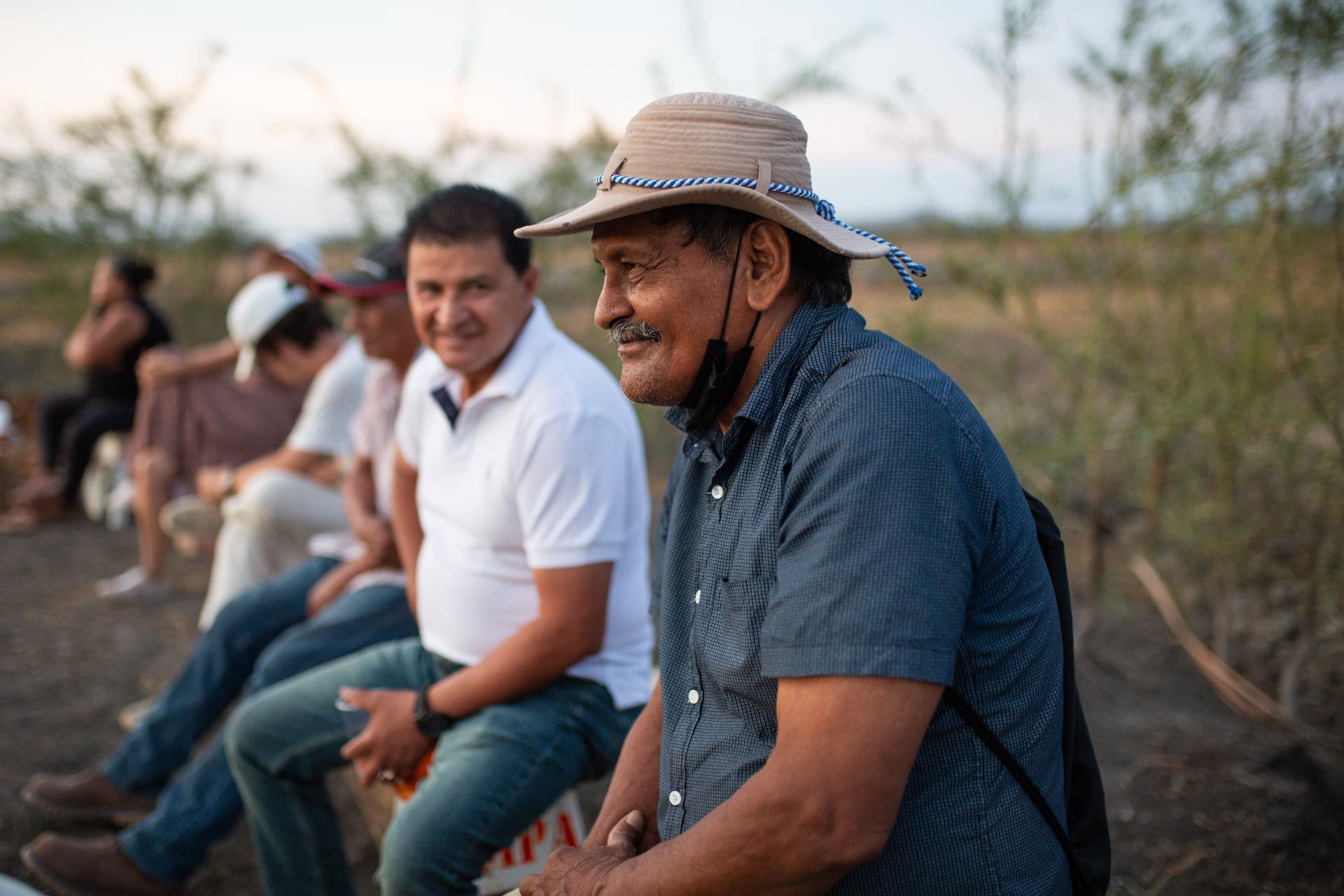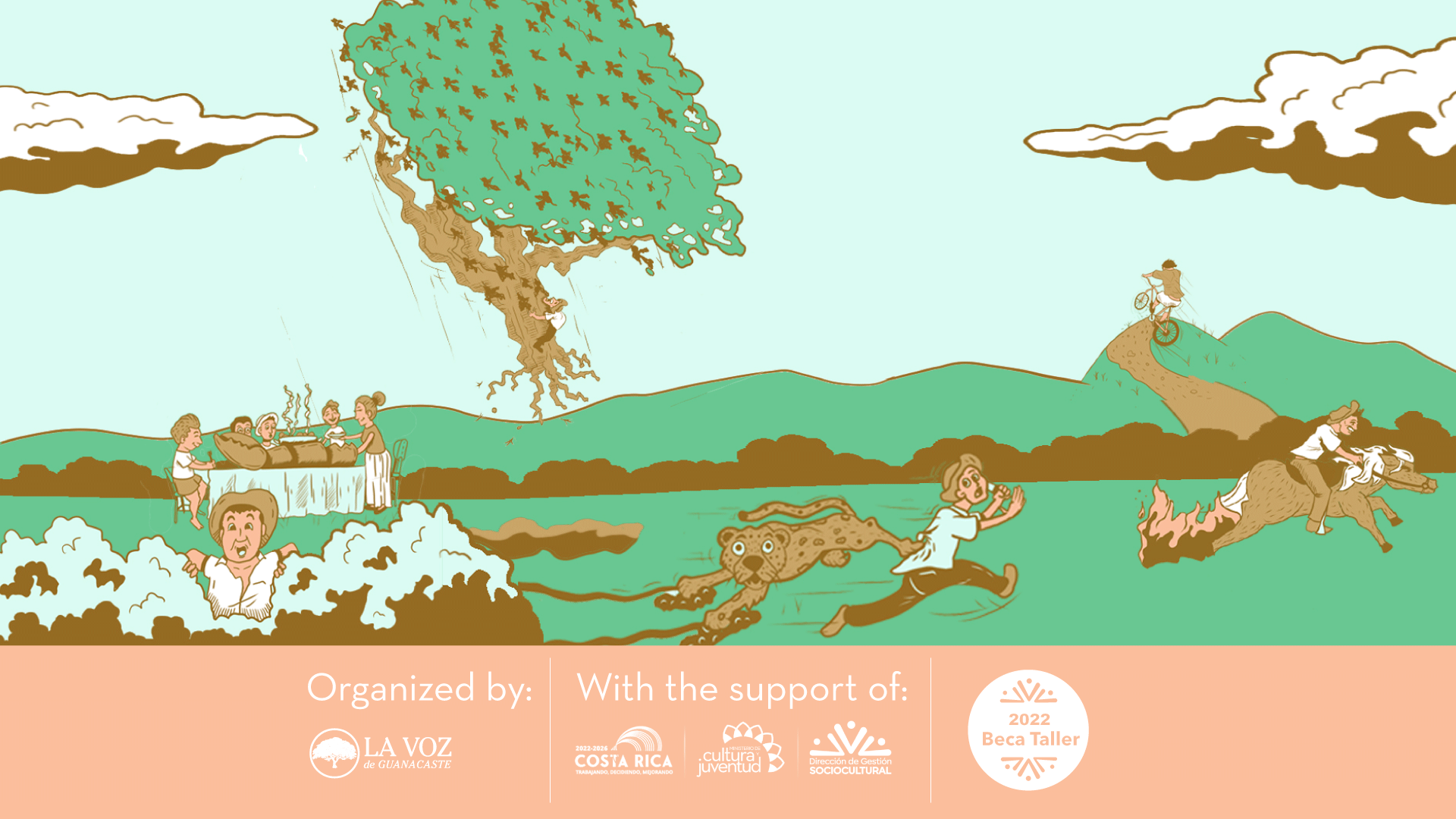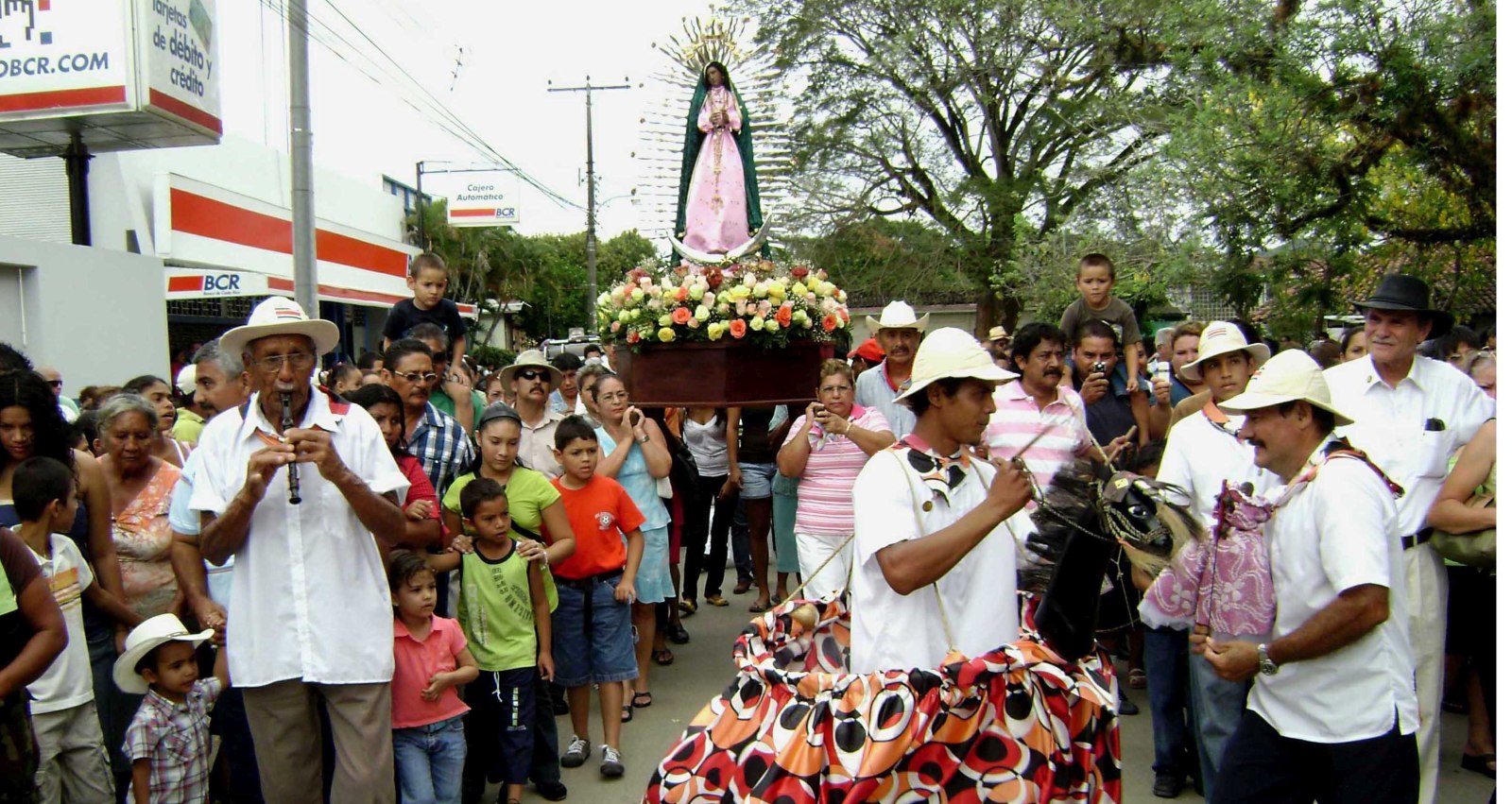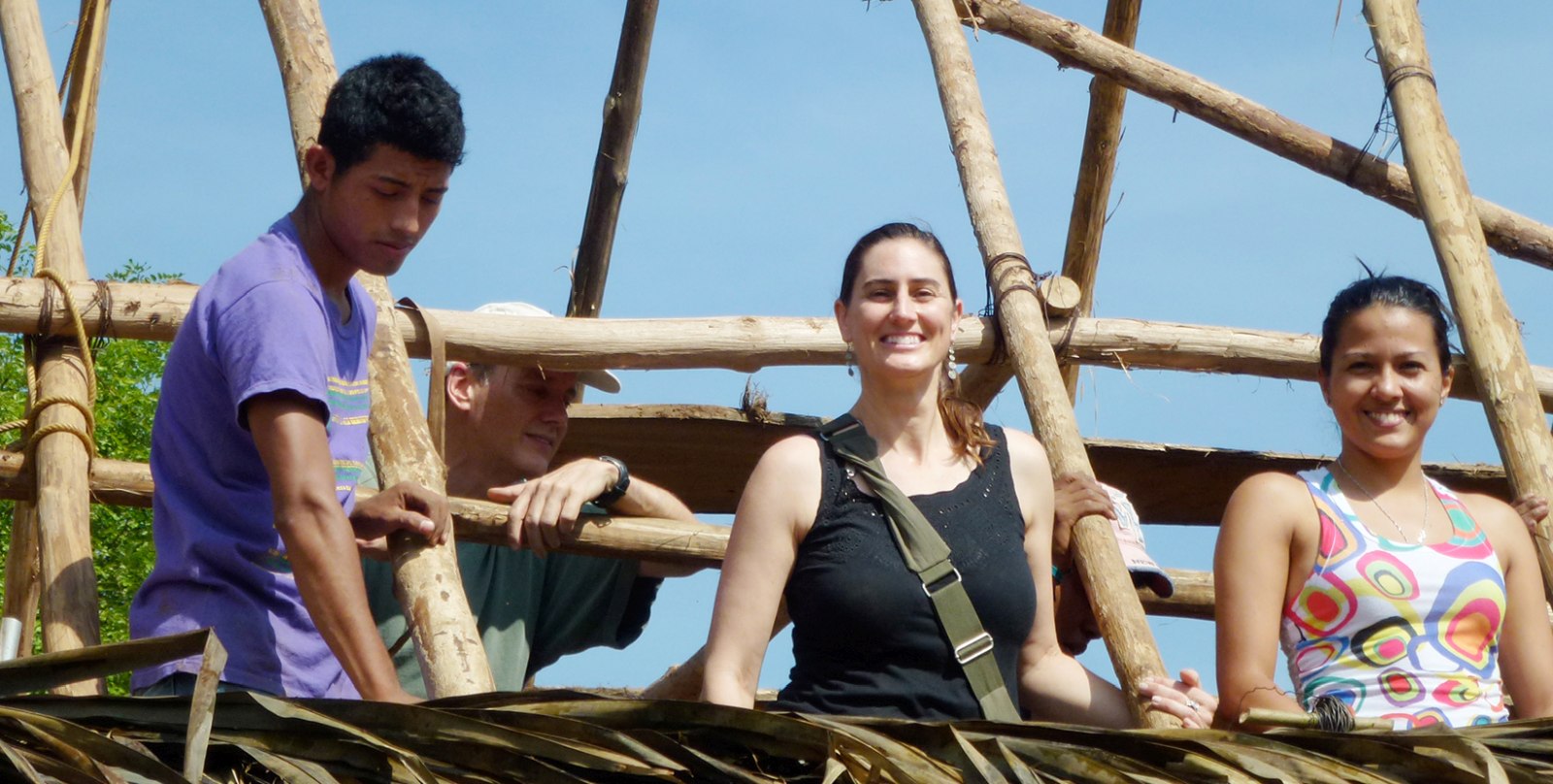
Note: Our “Historias de camino” podcast project has only been developed in Spanish.
In July of 2021, we dusted off Las Tallas de Tío Julián (The Tall Tales of Uncle Julian), a book that compiles 54 stories that Julian Matarrita, from Santa Cruz, told at parties and wakes. Journalist Hernan Gutierrez took on the task of transcribing all of those stories so they would become more widely known.
We chose eight of those stories and asked several Guanacastecans by birth (or at heart) to help by recording them in their own voices. In addition, we interviewed the book’s author, and he told us everything about the tallas (traditional tall tales) and about Julian. This conversation plus the eight tallas make up the first season of our “Historias de camino” (Stories Along the Way) podcast.
We saw the response from our audience, curious to learn more about this oral tradition. So we decided to tour the province looking for tallas and people who keep them alive. We went to libraries, development associations and multipurpose halls to find them. As we expected, we came back loaded with fantastic anecdotes: storms of insects, encounters with the devil and feline battles that flooded the lowland.
With these anecdotes, we brought the second season of “Historias de camino” to life. Producing this installment has been a journey that has taken several months and was as entertaining as the tallas.
Hunting Tall Tales
The first step in finding these stories was to organize a storytelling workshop in the communities of Pozo de Agua in Nicoya, Los Angeles in Nandayure, Las Juntas de Abangares and Liberia.
Nicoyan storyteller Luis Barrantes led the sessions, giving participants advice on how to best tell their story in front of an audience and how to hold the listener’s attention. Later, his character, “El Abuelo Luis Teocintle” (Grandfather Luis Teocintle, meaning “sacred corn” in Nahuatl), narrated the stories of another great Nicoyan tallas storyteller named Tomas Salinas.
This served as an “appetizer” so that other people were encouraged to tell their stories. Girls, teens and seniors filled these forums with their own stories and others that have survived in their families for generations. Here we noted that several of those stories were nearly identical.
A young man from Nandayure, Deivis Matarrita, shared with us one of the stories told by his great-grandfather, Fello Solano. It was a talla about a pig that was lost for several days and then appeared hidden in a giant yucca, where it gave birth to all of its babies. Days later, Zenen Piñar, in Pozo de Agua in Nicoya, told us a story that was almost identical. At the end of the day, these are rural experiences that have transcended towns and generations.
When we finished our tour of the four communities, we looked at our inventory of stories and selected seven of them to produce the new season of our podcast.

Zenén Piñar tells one of the tallas of this second season. Photo: César Arroyo Castro
Stories to build community
These forums served as a way for us to return to a practice that we’ve done for thousands of years: sitting in a circle to listen to stories.
Something characteristic of the towns and neighborhoods of the province is that neighboring families go out to the sidewalks and corridors to talk in the afternoons. The COVID-19 pandemic hit and suddenly put a halt to those moments. From one day to the next, the places where we spent time together as a community were left desolate.
Opening a meeting forum in these towns was a motive for spending time together as a community again. One of the participants in the workshop in Liberia was Marielos Jimenez, the most famous storyteller and reciter of retahílas (traditional rhyming verses) from the highlands of Guanacaste. She explained that telling stories is a way to help others, but also a kind of therapy for her.
“The fact that I’m going to tell stories, I’m going to remember people I love. That makes me happy. But do you know what makes me happiest? That people listen to these things and they can get out of that black and dark environment that this pandemic has brought us,” Jimenez pointed out.
Another participant, Guillermina Segura, who joined the workshop in Abangares, believes that the importance of these conversations goes far beyond just having a good time. Segura thinks that it also serves to keep the memory of the community alive.
After being confined, you notice that there’s a lack of that aspect of intergenerational conversation. The experiences of [the elderly] today help us a lot to meet the needs of young people to empower themselves, their roots,” explained Segura.
There are some young people who are making those roots grow, like Christopher Saborio. We didn’t meet him at any of the workshops, but ever since we saw a video of him telling tallas, we wanted to have him in our lineup for this second season.
When Christopher was studying at the elementary school in Cañas Dulces, a teacher encouraged him to tell tallas and legends in front of other people. Now Christopher is 13 years old, he has graduated from elementary school and moved away from that community of Liberia to live near the Central Valley. There, he noticed that the tallas and retahílas that he had learned in his school weren’t so common.
“You see, I’d like to rescue those traditions. Because you don’t see much of that here. Not as much as there. That’s lost here and I wouldn’t like it to be lost there as well,” Saborio commented.
“Historias de camino” is one more big push for these traditions to be preserved over time. Guanacaste’s cultural manager, Vera Vargas, explained that current technologies are a great tool to preserve oral memory because they make it possible to document those practices that are linked to knowing, telling and listening of those who live in the communities.
The memory of the communities will depend on the residents, members of cultural groups and heirs of cultural practices promoting a relationship of exchange of knowledge and of protection of traditions, which will protect the cultural memory of the peoples,” explained Vargas.
Residents like Guillermina and Marielos, who sat in a circle to tell us stories, are the ones who can ensure a long life for the tallas.
“My grandchildren hear these things and they tell them in their own way and that makes me happy, because I know that what Grandpa sowed with love in my life, I have also sowed with love in the lives of my grandchildren and great-grandchildren,” reciter Marielos Jimenez emphasized.
“Historias de camino” is a project organized by The Voice of Guanacaste, with support from the Workshop Scholarship Fund of the Ministry of Culture and Youth’s Department of Sociocultural Management. Cesar Arroyo was the producer of this season. Ruben Roman did the sound design and edited this podcast. Cántico Productions did the sound mastering and Roberto Cruz illustrated the stories.







Comments